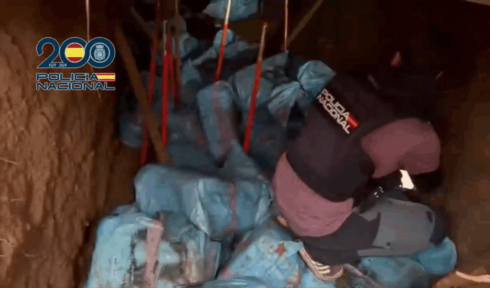SPAIN’S national political system used to be a two-party one, with the Socialists and the conservative Popular Party taking it in turns to govern since the 1980s. But that all began to change in the early 2010s, as groups such as Podemos and Ciudadanos came on the scene, mostly in a bid to clean up corruption.
Now, also thanks to the emergence of far-right Vox, the political outlook is more fragmented than ever – the national government, for example, is run by a coalition of the Socialist Party and junior partner Unidas Podemos (itself a union of leftist groups).
The administration lacks a working majority in Congress, however, and so must rely on support from other parties to get things done.
With local, regional and national elections all scheduled this year, the leader of the conservative Popular Party (PP), Alberto Nuñez Feijoo, set out a plan on Monday to deal with this fragmentation and the problems it can cause forming governments after inconclusive elections.
Feijoo has come up with what he called an ‘institutional quality’ scheme that includes a reform to electoral law, and that would ensure that the candidate in local council elections with the most votes would be made mayor even if they lacked a majority.
In effect, it would be the most-voted party that took power.
The result of this, however, could lead to a lame duck administration, given that opposition groups would have the votes to veto any proposals put forward.
For now, Feijoo has limited the plan to local councils, but party sources told Spanish daily El Pais that it could be rolled out to the country’s regions as well as the central government itself.
Such changes, however, would require consensus to alter not just regional statutes but also the Spanish Constitution.
The PP leader has committed to making the change within his first 100 days in office should he win power at the general election due to take place in late 2023.
In the past, the party has done deals with other groups – such as centre-right Ciudadanos and far-right Vox – to form governments, despite not being the most-voted party. The PP currently governs in the Castilla y Leon region in coalition with Vox.
Polling suggests that a PP-Vox government could be one of the likely outcomes at the general election this year.
Read more:
- ‘Fascists out,’ cry Madrid students over appointment of regional premier as distinguished alumni
- Thousands take to the streets of Madrid to demand the resignation of Spain’s Prime Minister Pedro Sánchez
- Spain passes controversial changes to sedition and misuse of funds laws in midst of constitutional crisis
Click here to read more Politics News from The Olive Press.








